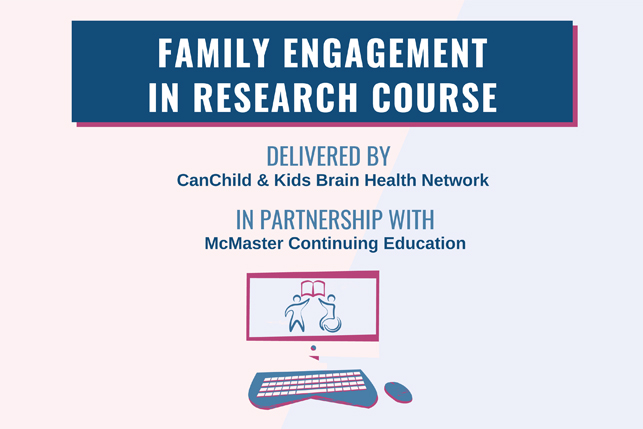https://kidsbrainhealth.ca/wp-content/uploads/2020/10/Nicola_Lewis_375px-375px.jpg
Nicola Lewis
Chief Executive Officer
https://kidsbrainhealth.ca/wp-content/uploads/2020/10/James-Reynolds_375px-375px.jpg
James Reynolds
Chief Scientific Officer
Executive Message
As Kids Brain Health Network (KBHN) entered its twelfth year, families affected by neurodevelopmental disorders (NDDs) were facing even more challenges than usual because of pandemic-related service interruptions. In fact, research conducted by our trainees in partnership with frontline organizations revealed that a significant number of families were in crisis, facing breakdown.
As restrictions eased and Canada began planning for pandemic recovery, we championed Canada’s hundreds of thousands of children with NDDs and their caregivers, who deserve solutions and supports they can count on in all circumstances. We also continued researching flexible, sustainable ways to help them live their best lives, knowing that these innovations need to enter into practice—and remain there—to have a lasting impact.
To this end, many of our research teams focused on spreading solutions across the country via our growing, multijurisdictional network of partners. They have also been removing barriers and helping new practitioners to implement their findings, even under challenging conditions. For example, researchers are making evidence-based programs available online, and testing versions that call for fewer resources.
To ensure that such impactful research continues, training the next generation of neurodevelopmental professionals and researchers is a top priority for KBHN. In 2021-2022, project teams engaged over 200 trainees and community stakeholders with research and implementation activities, providing them with experiential learning opportunities.
Meanwhile, our Board of Directors and the executive team have been focusing on the sustainability of KBHN’s mission after our third and final cycle of funding under the federal NCE program. We have strategized about financing the continuation of our work via government funding initiatives, philanthropy and commercialization. Promising steps have been made on all three fronts.
KBHN is making an important impact, but there is still more work to do. Our team, network members and partners are as dedicated as ever to advancing evidence-based solutions and supporting their implementation so they can reach and benefit as many kids as possible.
Thank you to all who are contributing to this progress with their skills, expertise, lived experience, funds or efforts.
https://kidsbrainhealth.ca/wp-content/uploads/2021/03/Laredo_Sheila_375px-375px-1.jpg
Sheila Laredo
Chair, Kids Brain Health Foundation
A special thanks to
https://kidsbrainhealth.ca/wp-content/uploads/2020/11/Azrieli-Logo-ENG-FR-Final.png
An Update From Our Foundation
With an eye to sustaining KBHN’s vital work, the registered charity Kids Brain Health Foundation focused on building its infrastructure this year, while also raising money for meaningful initiatives. Notably, we received generous multi-year philanthropic support from The Azrieli Foundation/La Fondation Azrieli and an anonymous donor. These contributions supported the Integrated Navigational Support Program, a cross-Canada initiative that is improving regional service navigation so that families of children with neurodevelopmental disabilities can find and access the supports they need. You can read more about it here.
To lay the groundwork for further growth, a working group comprised of staff and foundation board members developed our value proposition, and our governmental and philanthropic cases for support.
Moving forward, the foundation will ramp up its efforts to engage community leaders in supporting our efforts so that kids with neurodevelopmental disabilities can thrive.
We welcome you to join them.
The Integrated Navigational Support Program
An initiative working with local partners to build better regional systems of navigation, so that families have an easier time finding and accessing the services they need

Principal investigators
Dr. David Nicholas, University of Calgary
Dr. Lucyna Lach, McGill University
Funding Partner
What It Is
Families raising children with neurodevelopmental disabilities (NDDs) are often forced to navigate a confusing array of siloed, uncoordinated services spanning different sectors. They frequently struggle to determine what supports are available, which ones are appropriate for them at any given time, and how to access them—especially at key life junctures such as diagnosis, school entry or transition to adulthood.
These researchers have collaborated with local service providers in three places—Calgary, Vancouver and Yukon—to improve service navigation, bridge service gaps and reduce barriers to access. They are also sharing learnings, tips and approaches that could help other regions across the country to follow their lead.
This project is funded by a generous donation from The Azrieli Foundation/La Fondation Azrieli to the Kids Brain Health Foundation. “Our work in neurodevelopment spans neurons to networks to neighbourhoods,” says Naomi Azrieli, Chair and CEO. “It is crucial to not only support ground-breaking research and clinical care for neurodivergent people, but also initiatives like the Integrated Navigational Support Program, to ensure individuals, families and communities can access and benefit from these resources.”
Next Steps
Each region is alleviating the burden that navigation places on families in ways that work for the local context. This year, the Yukon team secured ongoing funding and a permanent office for navigation services. Partners in Alberta developed training modules for professional navigators, partners in British Columbia created a navigators’ community of practice and both of these teams evaluated peer-support programs where parents of children with NDDs helped other parents to identify and access resources.
At a country-wide level, the investigators hosted a conference where people shared what they’ve learned about building navigation capacity. They also published and distributed a community guide offering strategies for improving the odds that families of children with NDDs in any given region can get the services they need, when they need them.
The Year in Numbers
Partners in Sustainable Implementation
Our partners are the two-way bridge between scientific discoveries and the families who need them most.
Their investments of time, funding and expertise show their dedication to supporting our research and putting it into practice.
PGRpdiBzdHlsZT0iZGlzcGxheTogZmxleDsgYWxpZ24taXRlbXM6IGNlbnRlcjsganVzdGlmeS1jb250ZW50OiBjZW50ZXI7IiA+CjxkaXYgc3R5bGU9IndpZHRoOiA2MjVweDsiPgpbZHJhd2F0dGVudGlvbiBJRD0iMzMyOTUiXQo8L2Rpdj4KPC9kaXY+Building Long-Term Capacity to Support Communities and Families
By training and engaging promising young researchers, persons with lived experience, passionate frontline workers and other stakeholders, we contribute to a robust ecosystem of knowledge exchange and skills development. Here are some of the people we engaged this year.
https://kidsbrainhealth.ca/wp-content/uploads/2023/03/Researchers_and_Family_Members_icons_EE3124_105px-105px.png
FAMILY MEMBERS
| graduated from the Families Engaged in Research (FER) course. |
 |
Family Engagement in Research
> The FER course helps researchers and families learn to partner together effectively throughout the research process.

Principal investigators
Dr. Andrea Cross
Connie Putterman
Donna Thomson
Dr. Dayle McCauley
Dr. Patty Solomon
Dr. Jan Willem Gorter
117 researchers and 107 family members have completed the FER course, so far.
What it is
Certified by McMaster University and co-sponsored by Kids Brain Health Network and CanChild, a 10-week course called the Family Engagement in Research (FER) Course brings families and researchers together to learn from each other about how to build a productive partnership. By doing so, it aims to shape the future of Canadian neurodevelopmental research, anchoring it in the real-life needs of children and their families.
Highlights of 2021-2022
The course ran twice this year, allowing 61 new people to complete it. What’s more, FER’s founders and instructors introduced a new FER Leadership Academy to extend graduates’ impact in the community. It allows them to deepen their family-engagement skills through an enhanced curriculum and small-group mentoring.
As part of the requirements for the FER course, researchers and family members partner to create resources such as the infographic and the checklist below, both developed this year. They’re known as knowledge-translation tools because they help to spread knowledge and put it into action.
https://kidsbrainhealth.ca/wp-content/uploads/2023/03/Frontline_Service_Delivery_Personnel_icon_EE3124_105px-105px.png
DELIVERY PERSONNEL
| participated in training workshops and courses delivered by KBHN researchers. |  |
KBHN is committed to ensuring that children with NDDs and their families are served and supported well by doctors, therapists, teachers, social workers and others.
https://kidsbrainhealth.ca/wp-content/uploads/2023/03/Highly_Qualified_Personnel_icon_EE3124_105px-105px.png
PERSONNEL
| accessed training and experience through Network research projects and internships. |
 |
Our national training program prepares the next generation of professionals to foster better outcomes for children with neurodevelopmental disabilities and their families.
Learn more
https://kidsbrainhealth.ca/wp-content/uploads/2023/03/Associate_Trainees_icon_EE3124_105px-105px.png
| took part in Network training events. |  |
A sub-committee of trainees organized webinars to promote the professional development of all. The topics included:
- Family Engagement in Research
- Policy and Research
- Equity, Diversity, and Inclusion
- Knowledge Translation
- Lived Experience
- Implementation Science
- Entrepreneurship and Research
https://kidsbrainhealth.ca/wp-content/uploads/2023/03/Participants_and_Speakers_icon_EE3124_105px-105px.png
| exchanged knowledge at KBHN’s annual conference. |
 |
KBHN’s second virtual conference, “Realizing Change Through Partnerships and Research Innovation” highlighted outstanding research and practice while honestly exploring challenges in the field of children-focused neurodevelopmental disabilities.
Learn more
https://kidsbrainhealth.ca/wp-content/uploads/2023/03/Stakeholders_icon_EE3124_105px-105px.png
| engaged with Network-sponsored events across Canada. |
 |
From the 2022 Infant and Early Mental Health Lecture Series to the Fifth Annual Eastern Ontario FASD Symposium, KBHN-funded research teams hosted over 750 events this fiscal year.